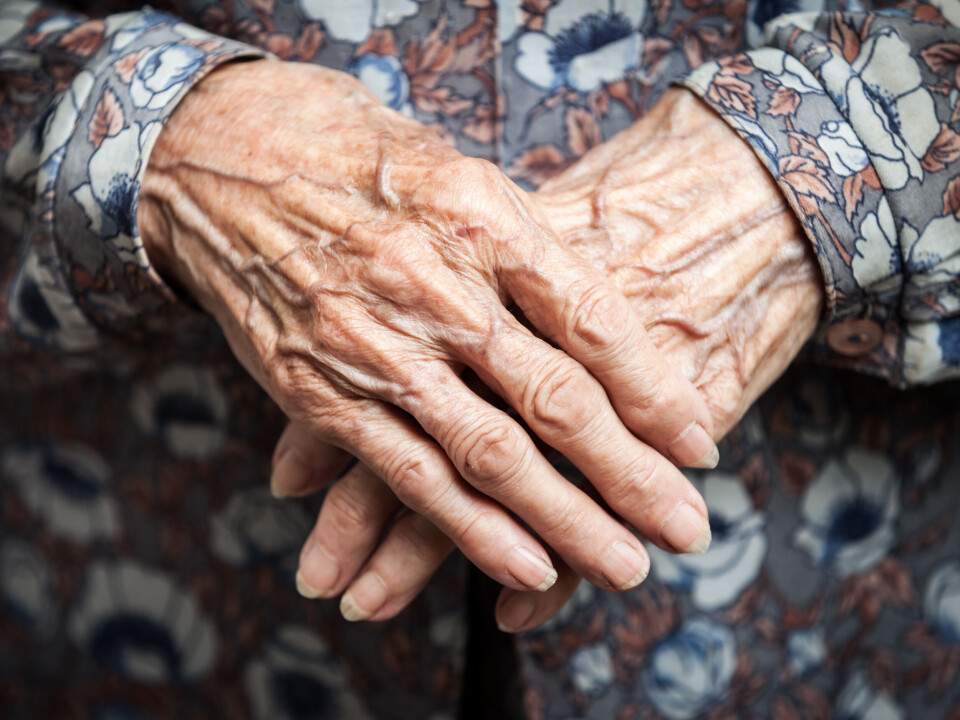-
December events in France: art, fashion and the Titanic
Explore Gustave Courbet's masterpiece at Musée d’Orsay, 1920s fashion at La Piscine, Picasso Museum's expansion, and the Titanic exhibition in Lyon
-
Vibrant Montpellier's festivals, beaches and year-round events
From Coeur de Ville en Lumières to Montpellier Danse, plus fabulous beaches, the city is a perfect getaway
-
Montpellier, a cultural hub with historic universities and diverse museums
Experience the city's diverse heritage and artistic offerings, featuring top museums like Musée Fabre
Why are so many people in France living to 100 now?
New figures show France has seen a sharp rise in the number of people becoming centenarians. We break down the data and explore why

There are now 30,000 people in France aged 100 or older, new figures reveal, nearly 30 times more than 50 years ago.
The data, from the French statistics bureau Insee, show that the number of centenarians has grown significantly since the 1960-1975 period.
Other findings include:
-
Women are much more likely than men to become centenarians; 86% are women, compared to 14% of men.
-
Half of France’s centenarians still live at home.
-
Men aged 100 or more are more likely to still live at home, and to still be in a couple.
-
People with degrees are more likely to live to age 100. Of the women aged 70-75 in 1990, 7% of those with higher degrees reached age 100, versus 3% of those without a degree.
-
Of 1,000 people in a sample who were aged 60 in 1980, 21 became centenarians in 2020.
The study also found that France could have a greater number of centenarians in the future, with upper projections suggesting there will be 76,000 people aged 100 or over by 2040.
During the 1960-1975 period, the number of centenarians was stable at around 1,100. But they began to rise by about 8% per year on average, from 1975 to 2015.
However, from 2015 to 2019, the number dropped from 24,100 to 18,500, as a result of the drop in births during World War One.
Since 2020, the number of centenarians has increased significantly, up 15% on average between 2020 and 2023, as a result of more births from 1920 onwards.
The rise would have been sharper were it not for Covid. Deaths of people born before 1923 were 5% higher as a result of the pandemic.
Despite the increases, however, centenarians are still relatively rare. They represent 0.04% of the population in France, compared to 1% for people in their 90s, 5% in their 80s, and 12% for people in their 60s.
How old is old?
Most of those who live to 100 or more are still far off the age of France’s ‘oldest woman’, Jeanne Calment, who was born in 1875 and died aged 122 in 1997. She holds the record for the world’s oldest person, whose age has been verified.
Until recently, France also had the world’s oldest living person: Nun Sister André, who was born in 1904 and died on January 17, 2023, at the age of 118.
In 2023, 91% of people aged 100 or more are aged 103 or over. As of January 1, the oldest person in France was 118, and the second-oldest 112.
Read more: ‘God has forgotten me’: French nun becomes world’s oldest woman
How does France compare with other European countries?
France’s National Institute of Statistics and Economic Studies (Insee) put France alongside other European countries to see how its number of centenarians compares.
It looked at the ratio between those more than 100 years old now per 1,000 people aged 60, 40 years ago.
This, it said, “was a good indicator to compare the probability of becoming centenarians by country, given the low number of migrations after 60 years”.
France came first with a ratio of 21%, ahead of Spain, Italy, Switzerland and Portugal.
Overall, in 2021, women born in France could expect to live to age 85.5, the second highest in the European Union behind Spain. France is in 10th place in the bloc for male life expectancy (79.3), which is higher than the EU average of 77.2.
Why do people in France live so long?
Insee stopped short of suggesting why women in France live so long. However, a report by France 24 suggested “a combination of factors” were among the reasons, including:
-
Exercising in older age
-
Eating healthily as part of a balanced diet
-
Lower rates of obesity
-
Declining rates of smoking
-
Red wine in moderation
-
The generous universal healthcare system
-
Working habits, including shorter working weeks and longer holidays
A study by TF1, which questioned some people aged 100 or over about the secret to their longevity, found answers including:
-
Continuing to stay active, with regular dancing or gentle gym-going
-
A restrained diet, without too much sugar
-
A lack of stress, with a good routine including enough sleep
-
Listening to, and playing music, for example on the piano
-
Staying married and connected to your spouse
-
Continuing to travel and explore
Dr Olivier Hanon, who specialises in geriatric care, told France 24: “The most important thing isn’t to live until you’re 110, 120 or 130. The most important thing is to live for as long as possible in good health, without a loss of autonomy.
“And for that, there really are lots of things we can do, because unfortunately, for the past few years in France, we are living for longer and longer, but we’re living for longer with a loss of autonomy.”
Related articles
MAP: See how life expectancy rates vary across France
Babies, life expectancy: how Covid has affected France’s population
Brittany only French region where life expectancy did not drop in 2020
























